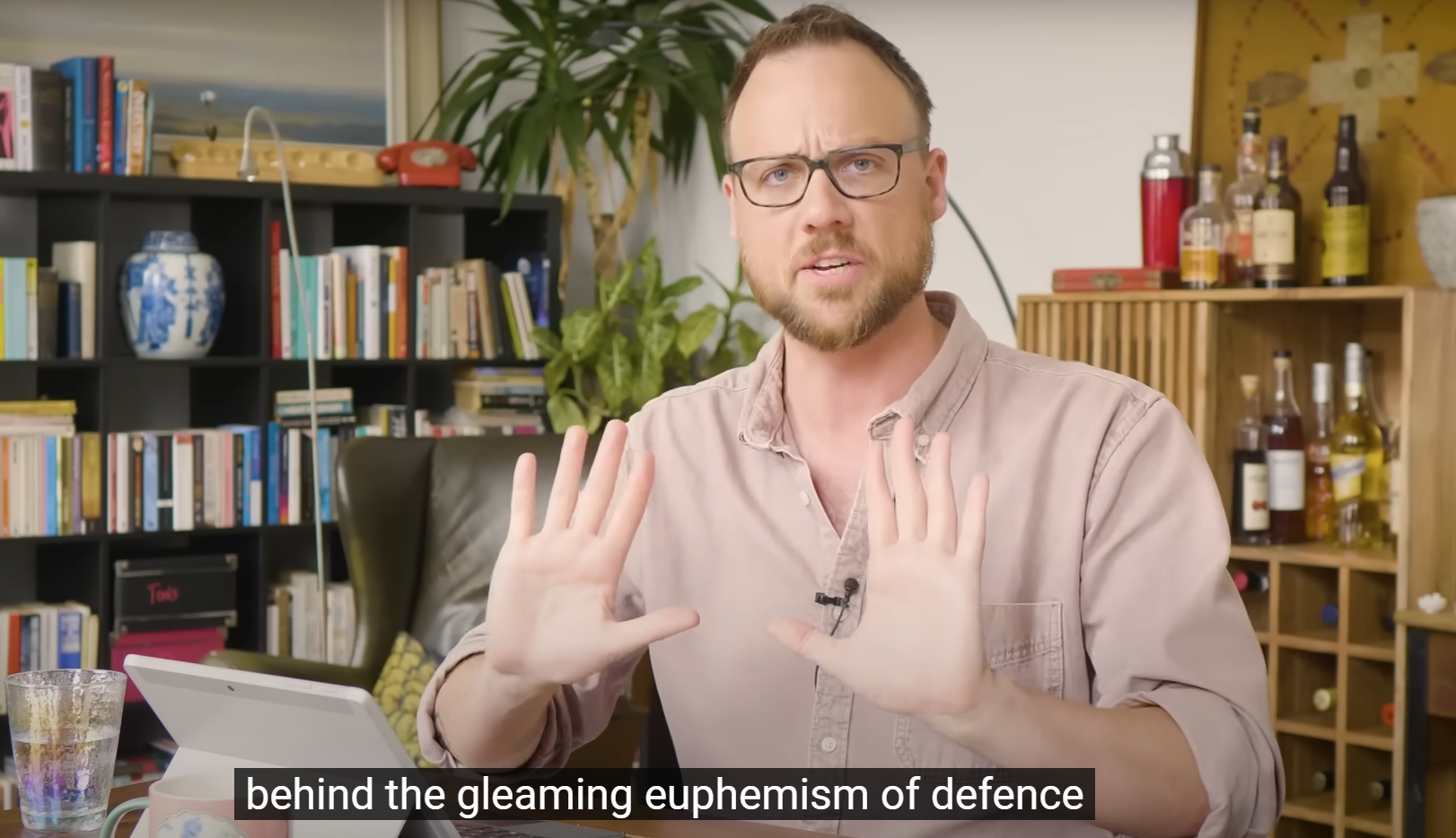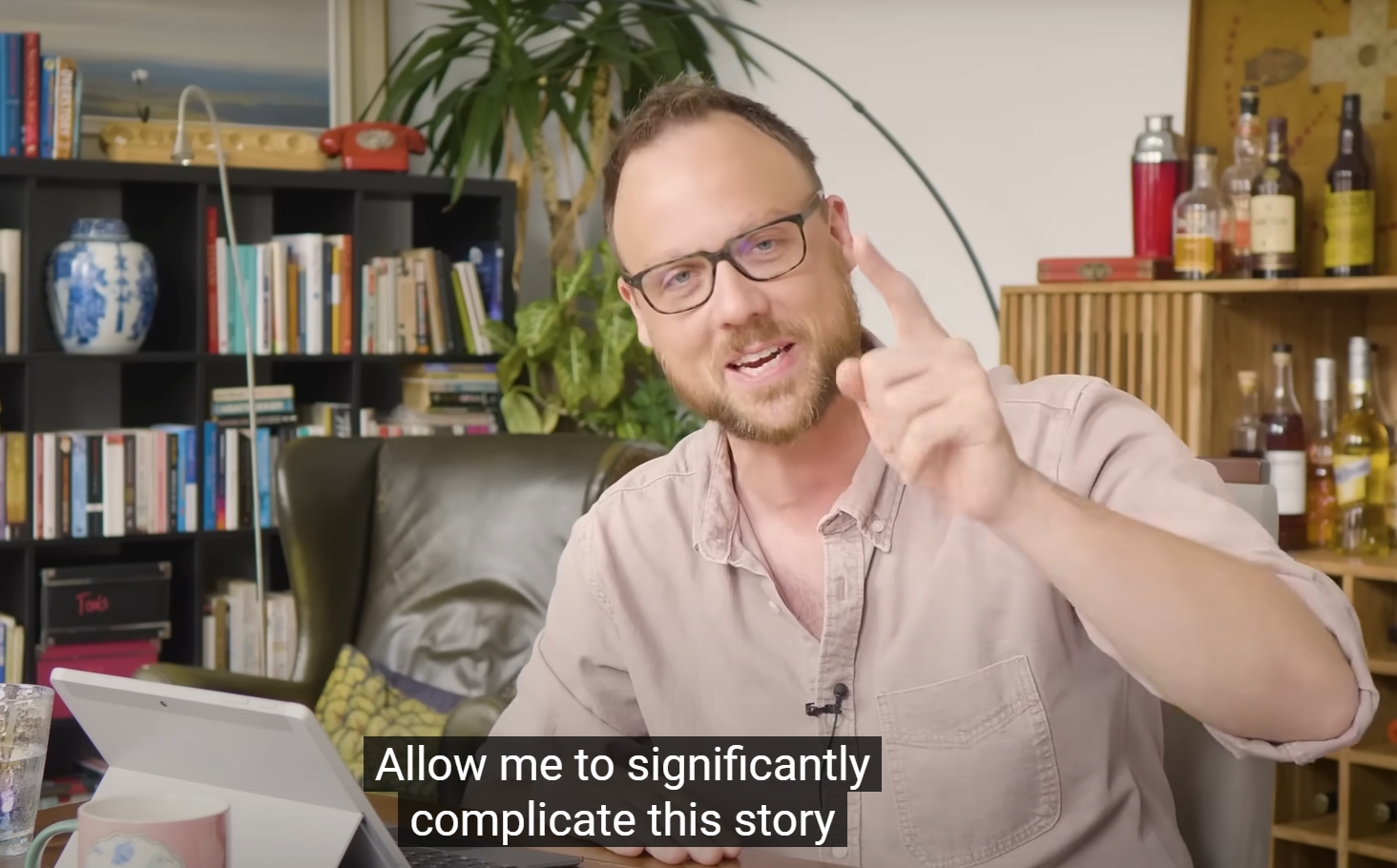The unashamedly political People Make Games cause me to sigh and splutter my Earl Grey from time to time, but the world of game journalism would be a much poorer place without their heavyweight investigations. Their latest free-to-watch video essay runs for over an hour and looks at the fascinating business of serious gaming.
Consistently thought-provoking and seriously well-researched, ‘The Games Behind Your Government’s Next War’ tackles a clutch of fascinating questions and includes input from some rarely-quizzed interviewees. Even if you’re well-versed in wargaming history, have encountered terms like ‘matrix game’ and ‘mega game’ before, and have spent many hours pondering the ethics of wargaming, I’d be amazed if you ended up feeling bored or patronised.

Yes, personally I’d have appreciated a little less hand-wringing and a bit more Realpolitik. For example, Quinns’ suggestion that unionised developers could influence the sector through contract clauses, seems to me incredibly far-fetched. The kind of recreational computer wargames that are – courtesy of publishers like Slitherine – finding their way into British MoD establishments, are, in my experience, made by tiny studios run by pragmatic individuals who are happy to help NATO militaries in any way they can.


Thanks for bringing this up as I’d not come across People Make Games before.
The one issue that is skirted around a bit is that making a living as a games designer can be very precarious and when someone can offer you a proper contract on very good money it can have a phenominal bias on decision making. I don’t know what the financial benefits of running LARP events are, but I’d wager that dstl and it’s Civil Service benefits package looks pretty good in comparison. Making an ethical argument against what may be a primarily financial decision seems unlikely to nudge the needle significantly, especially when the ethics contains more than enough wiggle room to justify any decision.
Uff, where do I start? I am not sure if Quinn is purposely disingenious or just sloppy? The perfect example (there are more) is found around the 43 minutes mark when he says that he was shown “software that simulated British task force assulting a village” and then he cuts to a guy playing one of the Combat Mission games who clearly explains: “…[what] the Blue forces, the UK, are doing is to clear the enemy out of the village”. It is a lot different, isn’t it?
Quinn, at 40 minutes mark remarks that “[using wargaming] to save lives in conflict would potentially result in more death on the other side…” and asks if that’s “plausible”? But what’s the alternative? Not simulate the potential consequences (in casualties) of a “hot” conflict? Again, he is being disingenious because he bemoans that wargaming “results in more death on the other side”. Certainly, but he should explain that wargames also simulate the opposite: conflicts where there’s more death on the British side.
Interestingly, Quinn actually is onto something – there are ethical questions to be asked. For example: is British government wargaming the recent street protests and how to deal with them? Or, are they simuilating the next pandemic and testing ways of how to house-arrest (“quarantine”) the British public even more efficiently than the last time? What about wargaming a biological terroris attack? Or one that takes out the power grid? A realistic alien invasion? An IRA resurgence? In short: are wargames being used against the British public or to simulate the overthrow of the country’s political system? Alas, Quinn doesn’t ask these questions…
Two quotes kept popping into my mind while watching this: “No plan survives contact with the enemy” (I am paraphrasing) and Patton’s “Your job is not to die for your country; it’s to make the other son-of-a-bitch die for his”. I wonder if Quinn’s experience would have been less anxious had he remembered those…